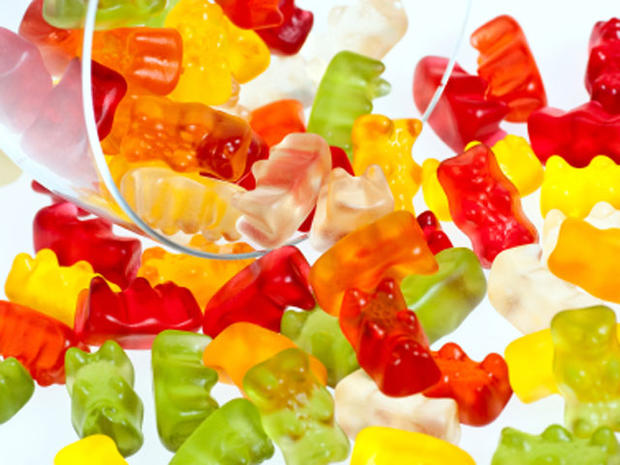Food coloring linked to ADHD? Ditch those gummy bears
(CBS/AP) If you are worried about your child and ADHD, it might be time to ditch the gummy bears and other colorful treats.
This week an FDA advisory panel will decide whether available data links artificial food dyes and the disorder. The results could lead to new warning labels on foods that kids love, such as Jello, sugared cereals, and even macaroni and cheese.
The government previously ruled that there is no proven relationship between food dyes and hyperactivity in most children. And the panel is unlikely to ban the petroleum-based dyes in question, such as Yellow 5, Red 40 and six others.
But consumer advocates and a growing body of scientists say evidence is mounting that processed foods - including those with artificial dyes - may play a role in the inattentiveness, hyperactivity and impulsivity that characterize attention-deficit hyperactivity disorder.
"Food is the main cause of ADHD," researcher Lidy Pelsser told NPR earlier this month.
Pelsser led a Norwegian team which found that more than 60 percent of kids diagnosed with ADHD were actually experiencing a hypersensitivity to certain processed foods. The team found that a 5-week diet that worked to figure out which foods were causing the problem produced astounding results.
"After the diet, they were just normal children with normal behavior," Pelsser told NPR. Their work, which didn't single out artificial food coloring and wasn't effective for all children, was published in the Lancet.
The FDA's recent attentiveness to the issue stems from a 2008 petition by the Center for Science in the Public Interest, which asked the government to ban synthetic food dyes. "It is medically and ethically unwise to burden hyperactive children and their parents with concerns about foods with synthetic dyes," they wrote.
Naturally, food manufacturers disagree. "All of the major safety bodies globally have reviewed the available science and have determined that there is no demonstrable link between artificial food colors and hyperactivity among children," the Grocery Manufacturers Association said in a statement, according to the New York Times.

